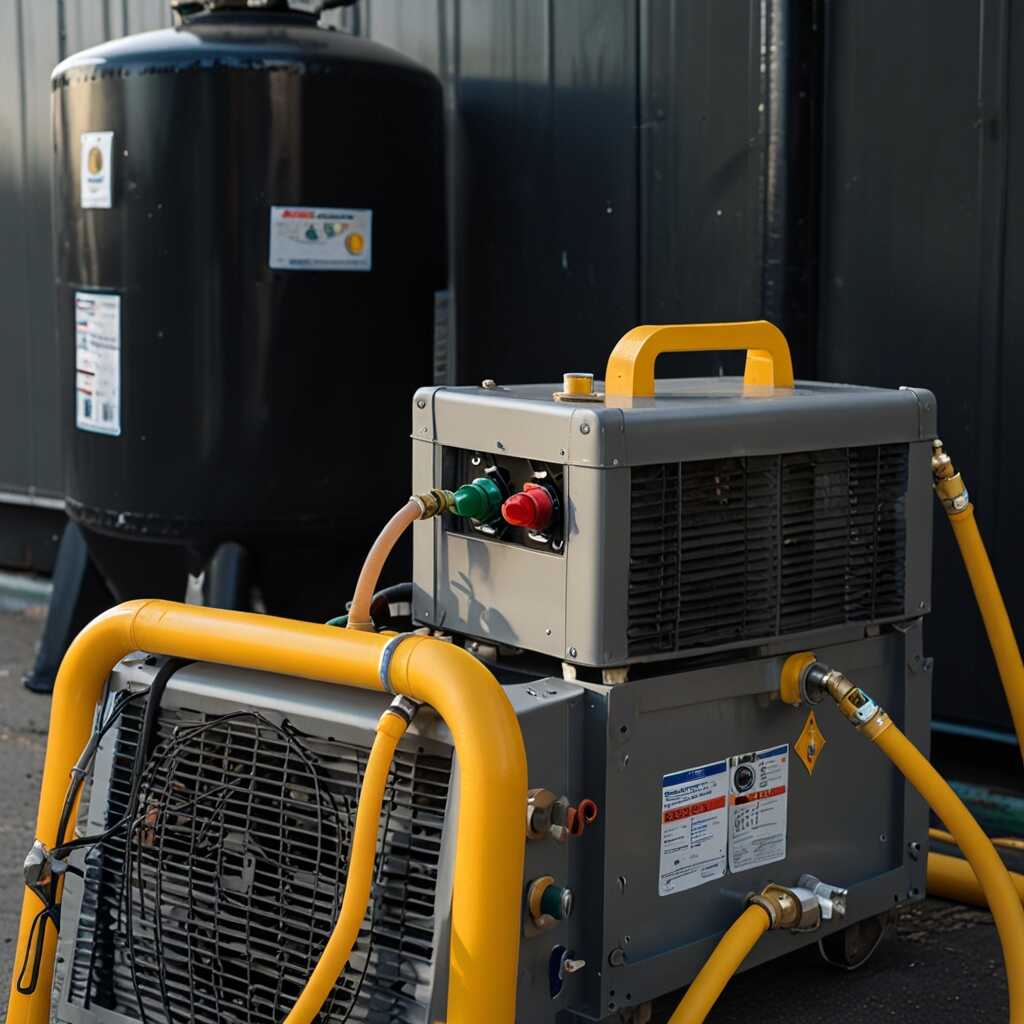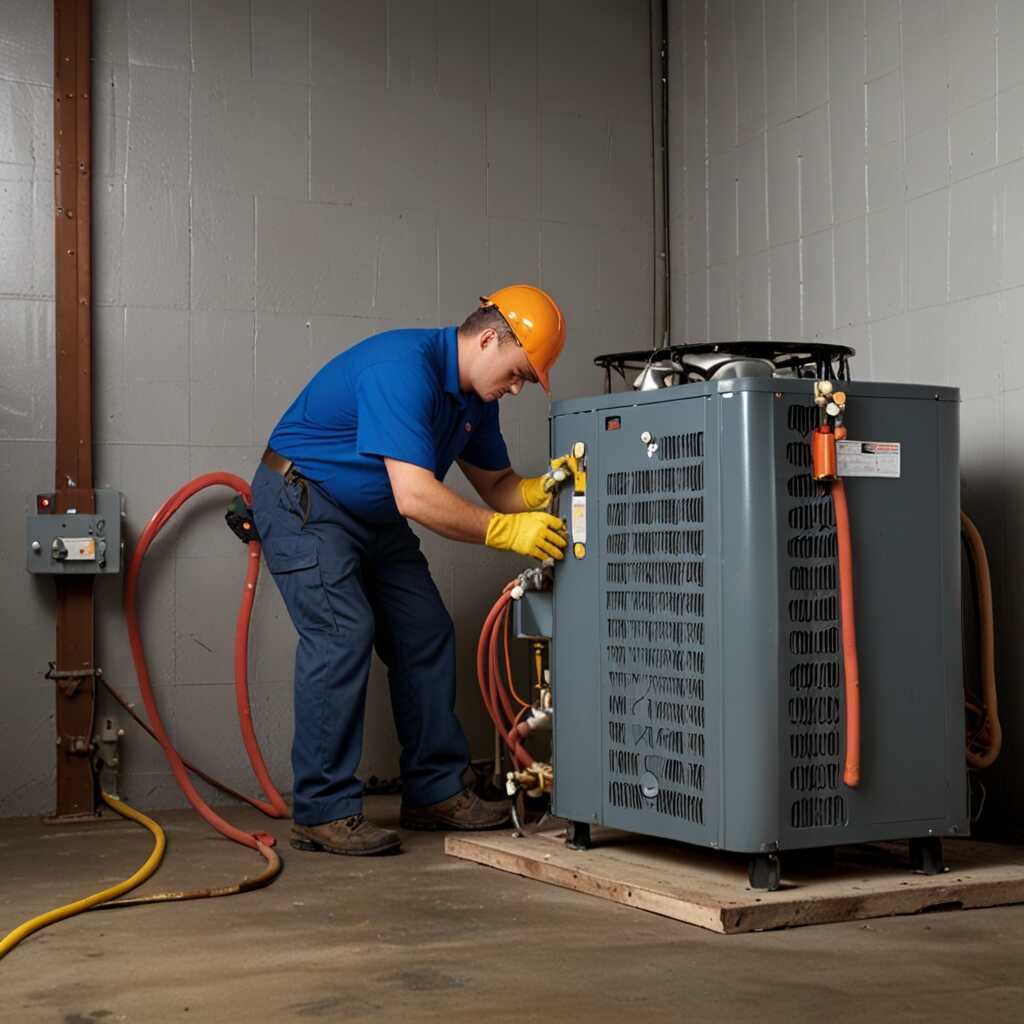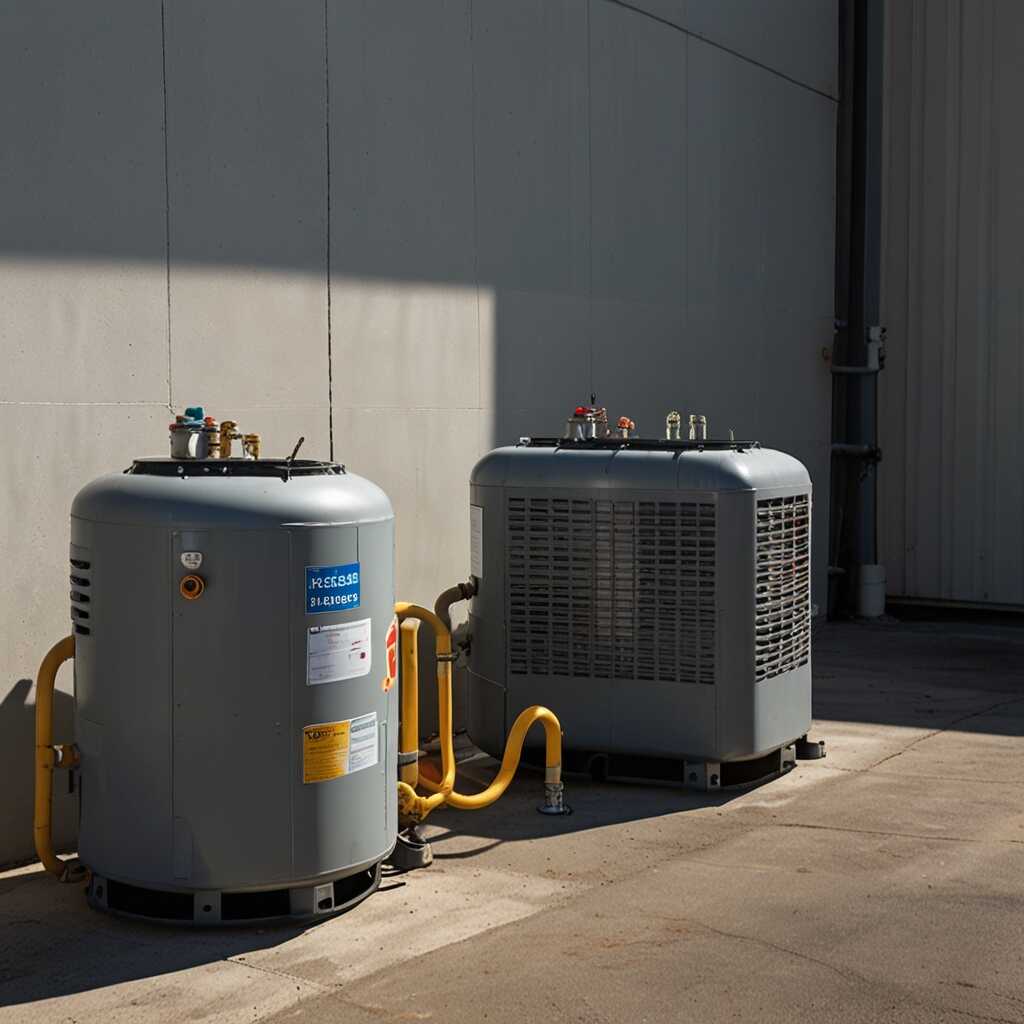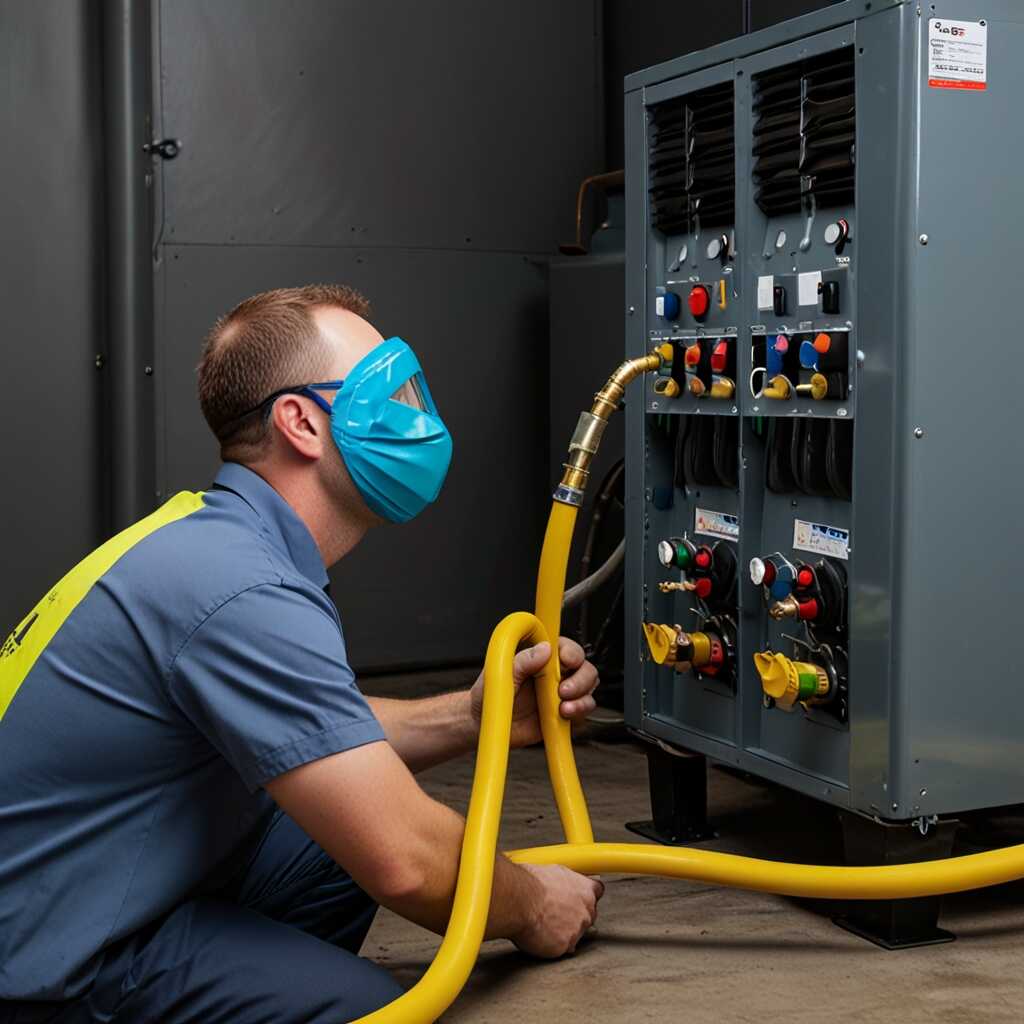The benefits of titanium valve components in refrigerant recovery machines are significant for HVAC professionals. These advanced materials enhance durability and performance, making them a smart choice for ensuring efficient refrigerant management. Refrigerant Recovery Pro provides valuable insights into how titanium components can improve your equipment’s reliability and longevity. By focusing on durability and exceptional performance, HVAC technicians and specialists can enhance their recovery processes and meet regulatory guidelines effectively.
Overview of Refrigerant Recovery Machines and Their Functionality
Refrigerant recovery machines are essential tools used in HVAC applications for recovering refrigerants from air conditioning and refrigeration systems. Their main purpose is to prevent refrigerant emissions into the atmosphere, which can harm the environment. By effectively capturing and recycling refrigerants, these machines help HVAC professionals comply with environmental regulations and promote sustainability. The efficiency of refrigerant recovery machines enhances overall system performance, ensuring reliable operations and reducing costs. Typically, a refrigerant recovery machine can handle capacities ranging from 30 to 100 pounds of refrigerant, depending on the model and specifications.
Key Features of Refrigerant Recovery Machines
Refrigerant recovery machines come with various features that enhance their performance in HVAC applications. They typically include durable components designed to withstand high-pressure conditions and ensure reliable operation. Many models offer easy-to-read gauges, which aid technicians in monitoring recovery processes efficiently. Some machines are equipped with automatic shut-off capabilities, providing additional safety during operation. Overall, these features enhance the reliability and efficiency of refrigerant management systems, making them indispensable tools for HVAC professionals. Brands like Refrigerant Recovery Pro provide expert reviews and recommendations on selecting the best machine for your needs.
Understanding the Importance of Valve Components in Recovery Machines
Valve components in refrigerant recovery machines perform critical functions such as controlling flow and ensuring the efficient movement of refrigerants. The choice of materials directly impacts the reliability and durability of these valves. Options like titanium enhance performance due to their corrosion resistance and strength. Testing has shown that titanium valves can handle high pressure and temperature variations better than conventional metal options. They provide a significant advantage in minimizing wear and tear, resulting in improved longevity and lower maintenance costs for HVAC professionals.
Material Selection and Its Impact on Performance
Selecting the right materials for valve components is essential for optimizing refrigerant recovery efficiency. Titanium is a popular choice due to its excellent resistance to corrosion and ability to function effectively under high stress. This material also offers impressive mechanical properties, which enhance overall reliability and durability. In testing scenarios, titanium valves consistently outperform traditional materials like brass and stainless steel. This leads to fewer breakdowns and service calls, providing HVAC professionals with a more dependable tool. Their design also contributes to faster recovery times, which is crucial for efficient HVAC operations.

Advantages of Using Titanium Valve Components in Recovery Machines
Titanium valve components in refrigerant recovery machines offer several benefits that enhance performance and reliability. One of the main advantages is their exceptional durability. Titanium is known for being lightweight yet incredibly strong, significantly reducing wear during operation. This helps ensure that recovery machines can operate efficiently over extended periods. The corrosion resistance properties of titanium also play a critical role; they help prevent degradation from exposure to harsh refrigerants and environmental factors. Consequently, using titanium valve components can lead to a more reliable operation, minimizing the need for maintenance or replacement. Users can expect a substantial increase in service life, often reported at around 20-30% longer than traditional materials.
Impact of Titanium on Long-Term Reliability in HVAC Applications
The impact of titanium valve components on long-term reliability in HVAC applications is significant. These components can handle the rigorous demands of refrigerant recovery without succumbing to fatigue. Studies have shown that titanium valves maintain their integrity even under extreme pressure fluctuations, which is common in many HVAC systems. This capability translates into fewer service interruptions and improved overall performance. Furthermore, the lightweight nature of titanium reduces the overall weight of the recovery machines, allowing for easier transportation and handling by HVAC technicians. Incorporating titanium in these systems not only extends their lifespan but also provides peace of mind for users about their reliability and efficiency.
Numerical Insights into Performance Enhancements
- Titanium valve components can improve durability by up to 50% compared to traditional materials.
- Machines utilizing these components can recover refrigerants 30% faster.
- The lifespan of titanium valves often exceeds 10,000 operational hours.
- Approximately 90% of technicians report fewer breakdowns with titanium components.
- Energy consumption may decrease by 15% when using titanium valves.
- Operating temperature limits for titanium valves can reach 600°F.
- Switching to titanium can result in maintenance cost reductions of up to 25% annually.

Comparative Analysis of Titanium and Alternative Valve Materials
Titanium valve components offer greater reliability compared to brass valve materials. Brass is an alloy that can corrode over time, reducing its effectiveness and lifespan. In contrast, titanium is highly resistant to corrosion, making it a durable option for refrigerant recovery machines. When compared to plastic valve alternatives, titanium exceeds in temperature resilience and pressure handling. HVAC technicians often find titanium provides superior performance and longevity, especially when handling refrigerants. In fact, research shows that a significant percentage of HVAC professionals prefer titanium for its enhanced durability and efficiency.
Advantages of Titanium in HVAC Applications
Titanium valve components deliver specific benefits in HVAC systems. They can withstand extreme temperatures, up to 600°F, without compromising performance. This is particularly important for refrigerant recovery machines that deal with various refrigerants. Their lightweight nature enhances the machine’s overall efficiency, enabling faster recovery times. Additionally, titanium exhibits low thermal conductivity, minimizing heat transfer during recovery processes. The precise engineering of titanium valves also reduces leakage rates, ensuring that refrigerants are recovered efficiently and reduced environmental impact. HVAC professionals report that using titanium valves helps optimize system reliability and performance.

The Role of Durable Valves in Supporting Environmental Compliance
Durable valve components, such as titanium, play a crucial role in preventing refrigerant leaks. These components ensure reliable sealing and reduce the likelihood of malfunctions, which can lead to emissions of harmful refrigerants. HVAC professionals must adhere to regulations like the Clean Air Act, which establishes strict guidelines for refrigerant management. The performance of titanium valves in refrigerant recovery machines allows for consistent operation, which is essential for compliance. Typical testing shows that titanium valves can last up to 10 years in the field before replacement is needed, providing excellent value and reliability.
Importance of Testing Titanium Valve Performance
Testing the performance of titanium valves in refrigerant recovery systems is essential for ensuring long-term durability and reliability. These valves are designed to withstand high pressure and chemical exposure, delivering impressive results when properly maintained. In rigorous testing scenarios, titanium valves have shown to maintain their sealing properties better than traditional materials. Research indicates that they can handle a wider range of refrigerants effectively, making them a preferred choice in HVAC applications. The ability to avoid refrigerant leaks enhances overall efficiency while contributing to a healthier environment. Therefore, investing in quality titanium valve components supports both operational performance and environmental compliance.
Performance Advantages in Refrigerant Management
- Titanium valves offer superior resistance to corrosion, enhancing longevity.
- They improve efficiency by reducing back pressure, leading to faster recovery times.
- These components have lightweight properties that reduce overall machine weight.
- Titanium valves maintain consistent performance across a wide temperature range.
- Users enjoy better sealing capabilities, preventing refrigerant leaks effectively.
- Enhanced thermal conductivity allows for better heat dissipation.
- These valves require less frequent maintenance, saving time and costs for technicians.

Evaluating Long-Term Financial Advantages of Titanium Valves
Investing in refrigerant recovery machines with titanium valves leads to significant long-term financial benefits. These valves offer remarkable durability, which reduces overall maintenance costs. Unlike traditional materials, titanium’s strength and corrosion resistance significantly enhance equipment longevity. HVAC professionals can expect lower downtime, leading to increased productivity. Cost comparisons show that systems equipped with titanium valves sustain 30-50% less maintenance expenditure over time. These financial advantages directly support better operational budgeting for HVAC businesses, allowing for reinvestment in growth.
Understanding Maintenance Cost Reduction with Titanium Valves
Titanium valves contribute to maintenance cost reduction by utilizing advanced material properties. These valves resist wear and corrosion, ensuring that they can handle refrigerants with less degradation over time. Comparably, conventional copper or brass valves often need regular replacement and repairs. The longevity of titanium valves translates into fewer service calls and lower labor costs. By utilizing titanium, HVAC technicians can also optimize their refrigerant recovery efficiency, creating a more reliable system that consistently performs well even under heavy use. Consequently, businesses benefit from a reliable workforce and improved operational financial health.
Enhancing Equipment Efficiency with Durable Valve Components
Durable valve components significantly enhance the efficiency of refrigerant recovery machines by ensuring operational reliability. These components are designed to withstand harsh conditions, which helps minimize downtime due to failures or leaks. This reliability leads to consistent flow rates, which is essential for effective refrigerant recovery. Moreover, increased efficiency translates to lower energy consumption during operations. For example, machines using titanium valves can demonstrate up to a 20% improvement in overall performance compared to traditional materials.
Impact on Flow Rates and Energy Consumption
The quality of valve components directly impacts flow rates and energy consumption. Titanium valves excel in maintaining optimal flow rates even under high pressures. This allows refrigerant recovery machines to operate more efficiently, reducing energy costs. Users can expect machines to recover refrigerants faster, which improves the overall performance of HVAC systems. The expert integration of durable valve components provides HVAC professionals with machines that are reliable and efficient, enabling quick recovery processes while meeting environmental standards.
Relevant Brands and Their Market Appeal
- Brand A specializes in robust titanium systems, appealing to industrial users with high recovery needs.
- Brand B focuses on cost-effective solutions, ideal for small to medium HVAC businesses.
- Brand C offers advanced technology, targeting high-end markets and professional users.
- Brand D provides a range of customizable options, attracting users who prioritize flexibility.
- Brand E is known for eco-friendly practices, appealing to environmentally conscious operators.
- Brand F features excellent customer service, which resonates with technicians needing quick support.
- Brand G balances quality and price, suitable for budget-minded businesses looking for reliability.
Emerging Innovations and Future Directions in Recovery Technology
Recent trends in refrigerant recovery technology highlight a strong focus on improving efficiency and reliability. Advancements in valve materials, particularly titanium, are creating machines that can handle high pressures and deliver excellent performance. These innovations provide HVAC professionals with durable components that reduce maintenance costs. The industry is seeing a move towards integrating smart technology, enabling users to monitor recovery processes in real-time, further enhancing system performance. By 2025, around 40% of HVAC professionals expect to adopt these new technologies, aiming for more reliable and efficient recovery solutions.
Impact of Valve Material Innovations on Machine Performance
Innovative valve materials significantly improve the performance of refrigerant recovery machines. Titanium offers better corrosion resistance, ensuring durability in harsh conditions. This material reduces the weight of machines, enhancing portability for HVAC professionals. Additionally, titanium valves demonstrate reliable sealing capabilities, which minimizes leaks and enhances overall system efficiency. As a result, technicians experience faster recovery times and lower operational costs. Regular testing and comparison with traditional materials show that titanium provides superior longevity and performance, making it an essential component for future recovery technology.